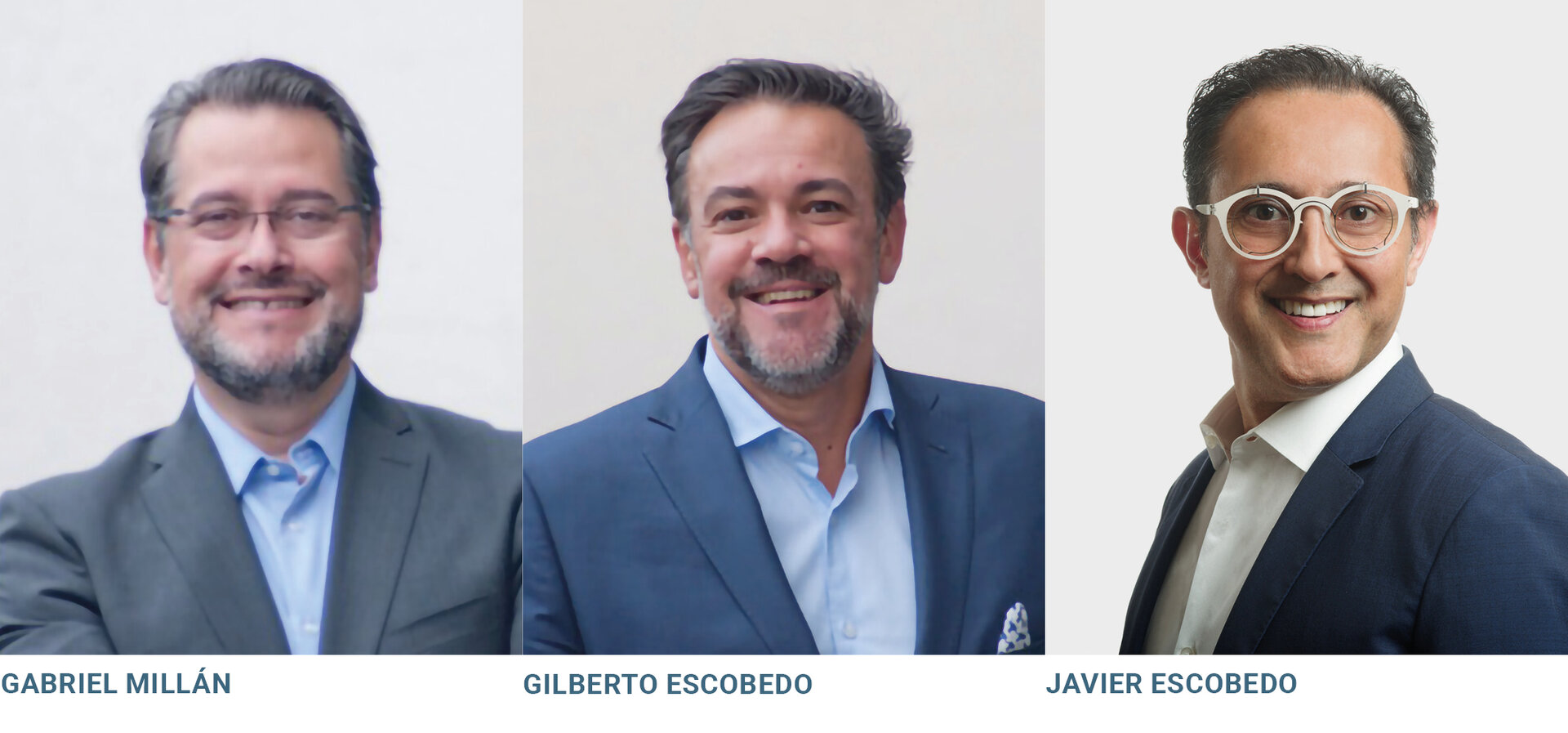Trends in VC Funding and the Entrepreneurial Ecosystem in Mexico and Latin America
Development in the venture capital (VC) ecosystem has accelerated throughout Latin America in recent years. Both the size of funding rounds and the number of funds providing capital in the region have increased, while more startups have developed innovative business models that show signs of scalability and expansion potential. Hans Castillo, Associate at Serficor IMAP — IMAP Mexico sat down with the partners of White Beard Ventures, a Mexican VC fund, to discuss the current VC environment in Latin America and find out why it holds such great potential for international investors.


HANS CASTILLO
Associate
Serficor IMAP
WAP Mexico
hanscastillo@imap.corn
In Mexico, VC investment boomed in 2021. Investments made by VC funds in the country reached US $4.8 billion, representing a 294% increase compared to 2020 (US $1.2 billion). The number of transactions also increased 60.5%, with 167 transactions compared to 104 in 2020, and 92 in 2019.
Last year was also a record year for VC in Latin America, which ranked as the fastest-growing region for venture funding globally. It is estimated that venture investments reached US $19.4 billion in the region in 2021, more than triple than in 2020.
We’ve seen an increase in both VC transaction volume and round size throughout Latin America in the last few years. What do you think are the main factors driving this growth?
The original boom transpired a couple of years ago, driven by the changes in the behavior of consumer and bank clients. Since there is an infrastructure and inefficiency problem in the traditional banking system, the region began adopting fintech and other banking and payment technologies.
Digitization has also played a cornerstone role in the development of the VC ecosystem. As changes in consumer habits started shifting more towards e-commerce and the use of food delivery platforms, this created a growing need for digital banking solutions, payment software, last-mile delivery, and integrated logistic platforms.
Cheaper valuations compared to developed markets have also made the region attractive, providing the perfect opportunity to match foreign capital with the need for companies to prop up fintech and digital solutions to meet growing e-commerce operations. Furthermore, many start-ups that originate in one country have the potential to grow in the region, especially in Spanish-speaking countries.

Why do you think the region is so attractive to international investors, particularly those in the US, Europe, and Asia?
The untapped user base in Latin America largely expands the investors’ home markets and has higher growth potential compared to other regions with more funds and capital.
International funds have also been attracted by cheaper prices in terms of multiples, less expensive talent, and the expansion opportunities that the region offers.
At the same time, the current valuation inflation in Silicon Valley and other startup hubs in developed markets has also played a role in the increase of funds to the region. Eventually, investors from developed markets began to realize that there are more attractive opportunities in developing countries, especially in Latin America.
Compared to other parts of the world with a similar population and GDP as Latin America, it took longer for the region’s VC ecosystem to develop. What do you think was restraining VC?
There was simply no need for capital to flow outside the US, in fact, there were many opportunities there, so international funds did not need to diversify and come to Mexico or Latin America because of the amount of capital being demanded by US startups.
Another factor is that risk is probably higher in Latin America compared to developed countries.
Cheaper multiples, less expensive talent, and expansion opportunities make Latin America attractive to investors.
Therefore, foreign capital only really started flowing into the region when attractive investment opportunities started to dry up in the US and other developed countries.
What is the main difference, if any, between the profiles of local company founders compared to their US and European counterparts?
There are two well-defined types of founders in Latin America. On the one hand, you have those coming from elite US schools, with which there are more similarities than differences compared to US founders. On the other hand, there are the local university graduates who are entirely different from US founders, as they are more used to working with limited budgets, bootstrapping, and are just beginning to explore the VC environment.
Also, traditional business culture has changed slightly with this generation of founders. Entrepreneurship was not very well thought of some 15-20 years ago, but it has become more fashionable and is considered an attractive option now. We have also seen a shift in business culture with younger generations within the business community, which have gone from aiming to take over the family business into venturing out to start their own. This culture has been seen for decades in countries like the US.
How does the future for VC look in the region?
We expect there to be less transactions, larger round sizes, and better and more developed companies. We also anticipate a reduction in the number of companies, as more sophisticated technology starts to be developed, more companies will struggle with their path to profitability, unit economics and higher barriers to entry. It will be a case of survival of the fittest.
At the same time, things are changing compared to what happened in private equity (PE) in the 1990s and 2000s, when there were just a few local funds with local money. Today there is a lot of interest from local family offices and high net worth individuals to explore this asset class and the returns it generates, so there will be more local capital being invested in the region over the coming years.
In terms of companies, we believe regional expansion is a key factor for startups’ survival and to secure more funding going into their later rounds. We have already started seeing companies operating in more than one country, taking advantage of the cultural and language similarities between them, which has allowed them to further develop their product/service offerings and improve their overall operations.
When it comes to countries, Brazil and Mexico will continue to be huge - nowadays these two countries account for 25% of the unicorns in the region. Colombia is also developing fast, and Ecuador and Peru have an interesting ratio of number of ventures per capita.
Why should international funds back Latin American startups?
For a start, because of its demographic and population. The region has an attractive user base that is only going to continue growing and will start looking for more innovative products and services, which will allow the region's startup scene to thrive.
The banking and digital payment systems are also still very underdeveloped, which is ideal for groundbreaking companies, especially the more innovative fintechs.
What's your advice for an international fund commencing operations in the region?
It is hard to navigate. This is a very dynamic ecosystem, with regional challenges and a lot of companies looking for money, so you will need local advice and local talent to guide your operation. However, once you grasp the dynamics and get to know the people, there will be a wealth of attractive opportunities to seize upon.
Can you give us a flavor of some of the projects you are currently advising on? Obviously, due to confidentiality, we can't reveal our client's names, however, we can tell you that we are currently advising a Logistics Tech company on a cap table restructuring, along with a "classic" employee benefits company on developing business areas for hypergrowth. Also, one of the first companies that we advised in the payments space has just sold to a larger company for an increased multiple.